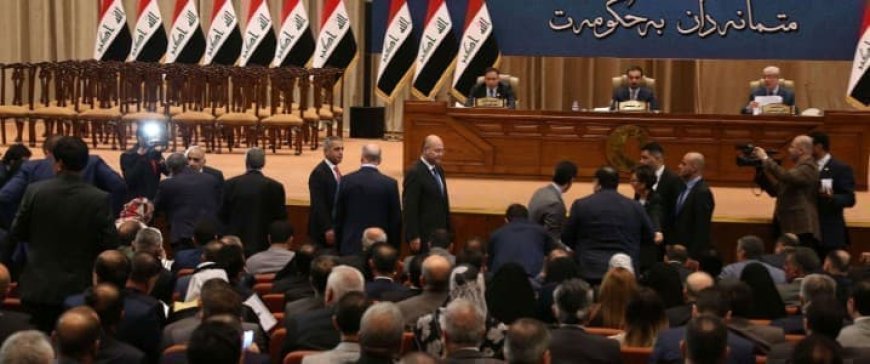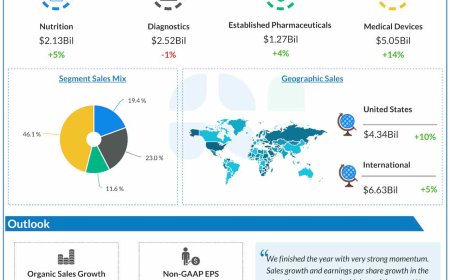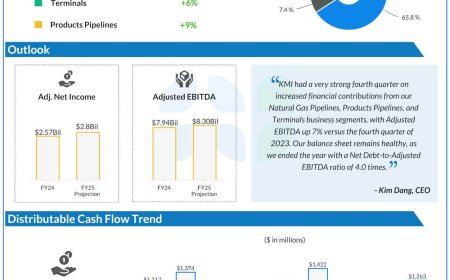Iraq Will Not Get a Time-Out in 2025
Iraq is a developing democracy, but its location — between Iran, Saudi Arabia, Turkey and Syria — means that it always faces pressure from outside its borders. The list of challenges it faced in 2024 ranged from ongoing security threats, including attacks on U.S. military bases by armed groups, political shifts and discussions about the presence of U.S. forces, and, perhaps above all, instability from the war in Gaza and the collapse of the Assad regime in Syria. To deal with these challenges, Prime Minister Mohammed Shia al-Sudani visited Washington to sign economic agreements and advocate for a stronger Iraq-U.S. partnership that moves beyond security to include energy, education and investment. Sudani worked to avoid being drawn into regional conflicts, instead focusing on internal infrastructure and economic development. Broader regional conflicts, particularly the tensions between Israel and Iran, and increased instability in the region made it harder to deal with the challenges related to displaced people and repatriations from Syrian refugee camps. Baghdad completed a nationwide census, the first in 40 years, which will affect the distribution of power in the nation’s sectarian system, possibly increasing internal tension. Iraq will not get a time-out in 2025. Despite the defeat of the Islamic State of Iraq and Syria in 2019, remnants of the group and other militias continue to pose threats — with potential for resurgence if political and economic grievances remain unaddressed. Linked to the threat from terror groups, border security and smuggling operations also remain major issues. The planned end of the U.S.-led coalition’s mission by September 2025 introduces new security dynamics, with a shift toward bilateral security arrangements (though a small number of American troops will remain). This change could either stabilize or further complicate Iraq’s security environment. Iraq is a developing democracy, but its location — between Iran, Saudi Arabia, Turkey and Syria — means that it always faces pressure from outside its borders. The list of challenges it faced in 2024 ranged from ongoing security threats, including attacks on U.S. military bases by armed groups, political shifts and discussions about the presence of U.S. forces, and, perhaps above all, instability from the war in Gaza and the collapse of the Assad regime in Syria. To deal with these challenges, Prime Minister Mohammed Shia al-Sudani visited Washington to sign economic agreements and advocate for a stronger Iraq-U.S. partnership that moves beyond security to include energy, education and investment. Sudani worked to avoid being drawn into regional conflicts, instead focusing on internal infrastructure and economic development. Broader regional conflicts, particularly the tensions between Israel and Iran, and increased instability in the region made it harder to deal with the challenges related to displaced people and repatriations from Syrian refugee camps. Baghdad completed a nationwide census, the first in 40 years, which will affect the distribution of power in the nation’s sectarian system, possibly increasing internal tension. Iraq will not get a time-out in 2025. Despite the defeat of the Islamic State of Iraq and Syria in 2019, remnants of the group and other militias continue to pose threats — with potential for resurgence if political and economic grievances remain unaddressed. Linked to the threat from terror groups, border security and smuggling operations also remain major issues. The planned end of the U.S.-led coalition’s mission by September 2025 introduces new security dynamics, with a shift toward bilateral security arrangements (though a small number of American troops will remain). This change could either stabilize or further complicate Iraq’s security environment. By James Durso for Oilprice.com

Iraq is a developing democracy, but its location — between Iran, Saudi Arabia, Turkey and Syria — means that it always faces pressure from outside its borders.
The list of challenges it faced in 2024 ranged from ongoing security threats, including attacks on U.S. military bases by armed groups, political shifts and discussions about the presence of U.S. forces, and, perhaps above all, instability from the war in Gaza and the collapse of the Assad regime in Syria.
To deal with these challenges, Prime Minister Mohammed Shia al-Sudani visited Washington to sign economic agreements and advocate for a stronger Iraq-U.S. partnership that moves beyond security to include energy, education and investment. Sudani worked to avoid being drawn into regional conflicts, instead focusing on internal infrastructure and economic development.
Broader regional conflicts, particularly the tensions between Israel and Iran, and increased instability in the region made it harder to deal with the challenges related to displaced people and repatriations from Syrian refugee camps. Baghdad completed a nationwide census, the first in 40 years, which will affect the distribution of power in the nation’s sectarian system, possibly increasing internal tension.
Iraq will not get a time-out in 2025.
Despite the defeat of the Islamic State of Iraq and Syria in 2019, remnants of the group and other militias continue to pose threats — with potential for resurgence if political and economic grievances remain unaddressed. Linked to the threat from terror groups, border security and smuggling operations also remain major issues.
The planned end of the U.S.-led coalition’s mission by September 2025 introduces new security dynamics, with a shift toward bilateral security arrangements (though a small number of American troops will remain). This change could either stabilize or further complicate Iraq’s security environment.
Iraq is a developing democracy, but its location — between Iran, Saudi Arabia, Turkey and Syria — means that it always faces pressure from outside its borders.
The list of challenges it faced in 2024 ranged from ongoing security threats, including attacks on U.S. military bases by armed groups, political shifts and discussions about the presence of U.S. forces, and, perhaps above all, instability from the war in Gaza and the collapse of the Assad regime in Syria.
To deal with these challenges, Prime Minister Mohammed Shia al-Sudani visited Washington to sign economic agreements and advocate for a stronger Iraq-U.S. partnership that moves beyond security to include energy, education and investment. Sudani worked to avoid being drawn into regional conflicts, instead focusing on internal infrastructure and economic development.
Broader regional conflicts, particularly the tensions between Israel and Iran, and increased instability in the region made it harder to deal with the challenges related to displaced people and repatriations from Syrian refugee camps. Baghdad completed a nationwide census, the first in 40 years, which will affect the distribution of power in the nation’s sectarian system, possibly increasing internal tension.
Iraq will not get a time-out in 2025.
Despite the defeat of the Islamic State of Iraq and Syria in 2019, remnants of the group and other militias continue to pose threats — with potential for resurgence if political and economic grievances remain unaddressed. Linked to the threat from terror groups, border security and smuggling operations also remain major issues.
The planned end of the U.S.-led coalition’s mission by September 2025 introduces new security dynamics, with a shift toward bilateral security arrangements (though a small number of American troops will remain). This change could either stabilize or further complicate Iraq’s security environment.
By James Durso for Oilprice.com











































